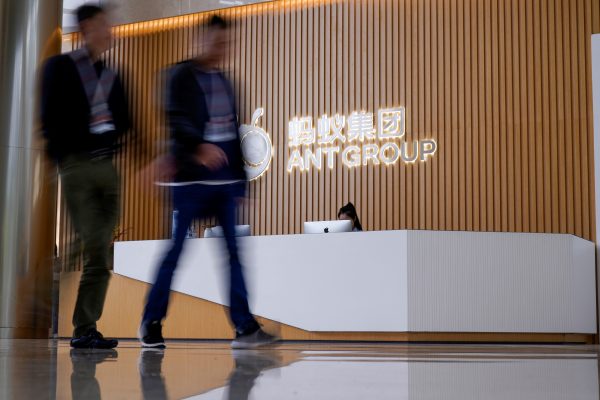The guidelines are underpinned by China’s Anti-Monopoly Law (AML), which was formally enacted in 2008. The AML was drafted with three objectives in mind: to curb foreign competition and foster domestic industrial growth, to protect consumers, and to limit monopolies by state-owned and administrated entities.
This is not the first time the AML has been applied in the information and communication technology sector. In 2014, China’s State Administration for Industry and Commerce (SAIC), one of the organisations responsible for enforcing the AML, investigated Microsoft over the use of its Windows operating system in China. In 2015, US chipmaker Qualcomm was fined US$975 million for violating the AML — which remains by far the largest fine in China’s corporate anti-monopoly history.
Skeptics of China’s anti-monopoly regime argue the application of the AML is often limited to warding off foreign competitors and protecting domestic industry. Amongst domestic tech giants, the AML is frequently leveraged between market participants to secure competition and market dominance. One of the first landmark anti-monopoly cases in China’s internet sector was the dispute between Qihoo 360 and Tencent. The court ruled in favour of Tencent, upholding that it did not have market dominance.
China’s latest antitrust investigation targeted former Alibaba CEO Jack Ma and the Ant Group in December 2020, putting an emergency halt on Ant’s proposed US$35 billion initial public offering (IPO) in Hong Kong. Ant Group is China’s leading fintech service provider and one of the largest private proprietors of financial, transactional, behavioural and demographic data. The investigation was the culmination of the Chinese Communist Party’s tightening fintech regulatory reform that began in 2015. These reforms aimed to better manage risks, economic growth and social stability and ultimately ensure the Party’s leadership over the digitisation of finance.
Strengthening anti-monopoly laws has long been a concern for Chinese authorities. But it is becoming all the more urgent as the internet in China becomes concentrated in hands of a few tech giants.
Monopolistic competition comes at a price. It encloses users into different walled gardens with poor data portability and compatibility. And it further divides the already federated Chinese commercial internet ecosystem along the fault lines of corporate interests and ownership.
In December 2020, the State Administration for Market Regulation (SAMR) fined Alibaba approximately US$76,500 for failing to seek approval before increasing its US$2.6 billion stake in department store chain Intime Retail Group in 2017. Tencent’s China Literature was fined the same amount over its buyout of New Classic Media in 2018. And in 2015, Microsoft and Shanghai Oriental Pearl Media Co Ltd were each fined US$31,430 for failing to report their Xbox venture to antitrust regulators.
But questions remain as regulatory probing continues — what happened to other unregistered mergers, acquisitions and joint ventures that triggered the reporting threshold, such as the killer acquisition between Didi and Uber in the country’s ride-hailing market?
The growth of tech giants in China has induced a vicissitude of sociocultural changes, including the rise of start-up culture and changes to labour relations, e-commerce and online culture. The latest anti-monopoly move is simply playing catch-up with these developments. Market competition still largely shapes platform policies. For example, WeChat formalised rules for external links in its External Link Content Management Regulation, banning links to services that are similar to WeChat or other platforms without authorisation from Tencent. Similarly, ByteDance’s Douyin banned all external links to third parties on its livestreaming platform in October 2020.
When it comes to doing business though, the Party still holds the moral bottom line. It criticised Tencent Games for its ‘poisonous’ effect on youth in 2017 and called out microblogging service Weibo for monetising its Hot Searches list in 2018. In 2019, it issued a warning to the largest two e-commerce companies, Alibaba and JD, about their monopolistic behaviour, particularly their forcing of manufacturers and merchants to sign exclusive cooperation agreements. In a recent People’s Daily editorial, the Party called upon platform companies to use their data and technologies to contribute to China’s innovative capacity, rather than going after each other in pursuit of web traffic and short-term profits.
Anti-monopoly rules and recent moves to regulate web services are only the beginning of the end of unbridled platform power in China. Chinese consumers still lack proper protection within the highly concentrated market, where competition is costly and innovation is stifled.
Chinese regulators still face challenges in ironing out the details of AML enforcement. How should they define market and account market share when most services do not compete on price points? What constitutes anti-competitive behaviour for platform companies?
With the lack of transparency in the country’s short-staffed AML enforcing agencies, the revolving door between tech giants and state regulators remains hidden from public oversight.
Lianrui Jia is a Postdoctoral Fellow at the Department of Arts, Culture and Media at the University of Toronto Scarborough.

